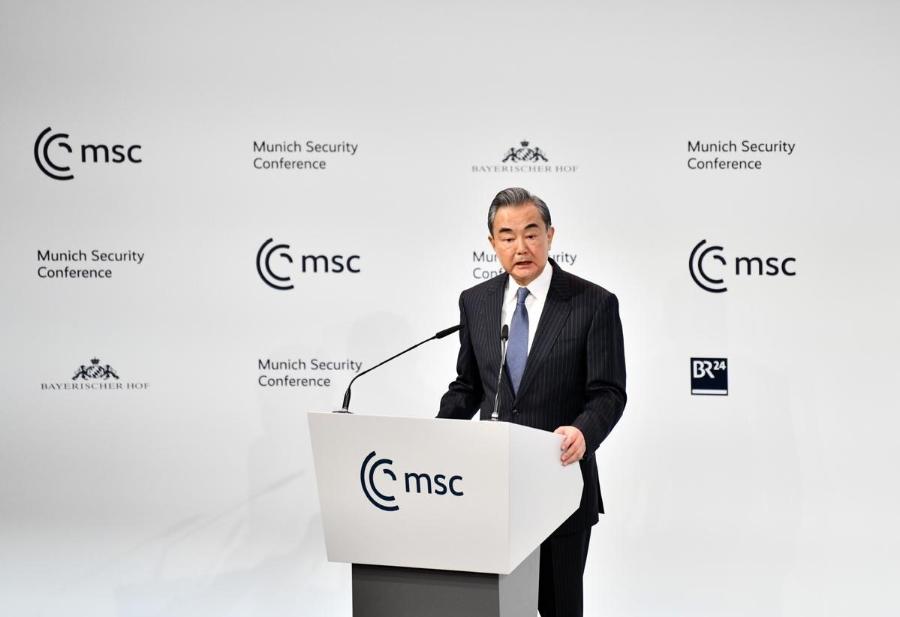
Wang Yi, director of the Office of the Foreign Affairs Commission of the Communist Party of China Central Committee. [Photo/Xinhua]
This is an editorial from China Daily.
Senior Chinese diplomat Wang Yi held talks with Japanese Foreign Minister Yoshimasa Hayashi and Dutch Deputy Prime Minister and Foreign Minister Wopke Hoekstra on the sidelines of the Munich Security Conference on Saturday, in which he reminded them of the friendly engagement their countries have had with China.
In his latest role as a member of the Communist Party of China Central Committee Political Bureau and director of the Office of the Foreign Affairs Commission of the CPC Central Committee, Wang emphasized that China is a reliable partner of, rather than a rival or threat to, Japan, the Netherlands or Europe.
Criticizing "some countries" for their unilateralism, protectionism and breaking of industry and supply chains in their bid to decouple from China, he called on Japan and the Netherlands to refrain from following suit.
In a heavy blow to the Chinese semiconductor industry, the Netherlands and Japan recently bowed to US pressure, agreeing to restrict exports of some advanced chipmaking equipment to China.
Following up on his speech at the Munich conference, in which he urged Europe to "manifest its strategic autonomy", the Chinese envoy exhorted Japan and the Netherlands to demonstrate independence in the face of external pressure.
Unilateralism, decoupling or breaking industry and supply chains are in no side's interest, Wang stressed to Hayashi, saying Japan should be clear-eyed about the situation and make its own independent choice.
Emphasizing openness and pragmatism as "important connotations" of China-Netherlands relations, he expressed the hope that the Dutch side would adhere to the principle of independence and the tradition of open cooperation, eliminate interference, and ensure stability of global production and supply chains.
While Hayashi reiterated his government's continuous commitment to good-neighborly ties with China and Hoekstra confirmed his country's willingness to "continue to be a reliable and stable cooperative partner", it remains to be seen if such meetings can prompt a change of heart on the part of the two countries with regard to the restrictions on chipmaking equipment.
Nonetheless, it is of critical importance at such a juncture to reassure key traditional partners such as Japan and the Netherlands about China's continuous commitment to constructive engagement.
In that light, the China-Japan security talks being held today and tomorrow, the first in four years, are a particularly timely follow-up to the meeting between Wang and Hayashi.
This year marks the 45th anniversary of the Peace and Friendship Treaty between the two countries. Japan should take this opportunity to reflect on the proactive role it is playing in the West's continuously broadening and increasingly risk-causing "Indo-Pacific strategy" and, as Wang said, work with China to maintain constructive and stable bilateral relations.

 中文
中文



